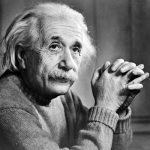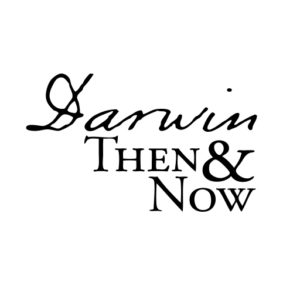 Inductive and deductive reasoning are complementary approaches in science.
Inductive and deductive reasoning are complementary approaches in science.
-
- Inductive reasoning develops a theory from observations.
- Deductive reasoning tests an existing theory.
Inductive reasoning moves from specific observations to broad generalizations, and deductive reasoning is the other way around to test the validity of the theory.
Inductive Approach
When there is little to no existing literature on a topic, it is common to perform inductive research because there is no theory to test. The inductive approach consists of three stages:
-
- Observation
- A low-cost airline flight is delayed.
- Dogs A and B have fleas.
- Elephants depend on water for their existence.
- Observe a pattern
- Another 20 flights from low-cost airlines are delayed.
- All observed dogs have fleas.
- All observed animals depend on water or existence.
- Develop a theory or general (preliminary) conclusion.
- Low-cost airlines always have delays.
- All dogs have fleas.
- All biological life depends on water for existence.
- Observation
Limitations of An Inductive Approach
A conclusion drawn on the basis of an inductive method can never be proven, but it can be invalidated.
Example
You observe 1000 flights from low-cost airlines. All of them experience a delay, which is in line with your theory. However, you can never prove that flight 1001 will also be delayed. Still, the larger your dataset, the more reliable the conclusion.
Deductive Approach
When conducting deductive research, you always start with a theory (the result of inductive research). Reasoning deductively means testing these theories. If there is no theory yet, you cannot conduct deductive research. The deductive research approach consists of four stages:
-
- Start with an existing theory (and create a problem statement).
- Low-cost airlines always have delays.
- All dogs have fleas.
- All biological life depends on water to exist.
- Formulate a falsifiable hypothesis based on existing theory.
- If passengers fly with a low-cost airline, they will always experience delays.
- All pet dogs in my apartment building have fleas.
- All land mammals depend on water for existence.
- Collect data to test the hypothesis.
- Collect flight data of low-cost airlines.
- Test all dogs in the building for fleas.
- Study all land mammal species to see if they depend on water.
- Analyze and test the data
- 5 out of 100 flights of low-cost airlines are not delayed.
- 10 out of 20 dogs didn’t have fleas.
- All land mammal species depend on water.
- Decide whether you can reject the null hypothesis
- 5 out of 100 flights of low-cost airlines are not delayed = reject hypothesis.
- 10 out of 20 dogs didn’t have fleas = reject hypothesis.
- All land mammal species depend on water = support hypothesis.
- Start with an existing theory (and create a problem statement).
Limitations of a Deductive Approach
The conclusions of deductive reasoning can only be true if all the premises set in the inductive study are true and the terms are clear.
Example
-
-
- All dogs have fleas (premise).
- Benno is a dog (premise).
- Benno has fleas (conclusion).
-
Based on the premises we, the conclusion must be true. However, if the first premise turns out to be false, the conclusion that Benno has fleas cannot be relied upon.
Application
 In the words of Albert Einstein (1879-1955) –
In the words of Albert Einstein (1879-1955) –
“No amount of experimentation can ever prove me right; a single experiment can prove me wrong”
Inductive vs. Deductive Reasoning is a subcategory of Science Study Methods
More
Science Study Methods may use different reasoning processes, including –
-
- Inductive vs. Deductive Reasoning (current page)
- Circular Reasoning
- Epistemic Reasoning
- Dating Earth Reasoning
Darwin Then and Now is an educational resource on the intersection of evolution and science, highlighting the ongoing challenges to the theory of evolution.
Move On
Explore how to understand twenty-first-century concepts of evolution further using the following links –
-
- The Understanding Evolution category showcases how varying historical study approaches to evolution have led to varying conclusions. Subcategories include –
- Studying Evolution explains how key evolution terms and concepts have changed since the 1958 publication of The Origin of Species.
- What is Science (current category) explains Charles Darwin’s approach to science and how modern science approaches can be applied for different investigative purposes.
- Evolution and Science feature study articles on how scientific evidence influences the current understanding of evolution.
- Theory and Consensus feature articles on the historical timelines of the theory and Natural Selection.
- The Biography of Charles Darwin category showcases relevant aspects of his life.
- The Glossary defines terms used in studying the theory of biological evolution.
- The Understanding Evolution category showcases how varying historical study approaches to evolution have led to varying conclusions. Subcategories include –


